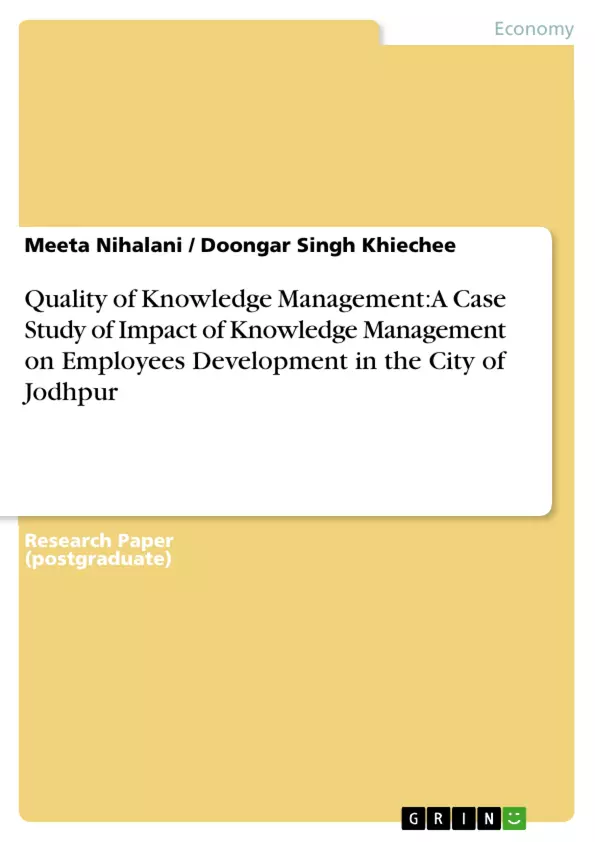Knowledge management is the basis for the growth and the prosperity for the organizations. It is the intangible asset for the organization to grow in a sustainable way. It impacts the culture and values for the organization. The impact of the knowledge builds the experience and makes system efficient by the connections in the organization. The basic aim of the paper is to build the strategic input for designing the knowledge management process to develop the employees in the organization.
Inhaltsverzeichnis (Table of Contents)
- Introduction
- Literature review
Zielsetzung und Themenschwerpunkte (Objectives and Key Themes)
This paper aims to provide a strategic input for designing knowledge management processes to enhance employee development within organizations. It explores the impact of knowledge management on organizational growth, culture, and employee development, highlighting its crucial role in building a sustainable and prosperous environment.
- The role of knowledge in organizational growth and employee development
- The influence of knowledge management on organizational culture and values
- The impact of knowledge management on employee skills, experiences, and learning
- The significance of knowledge management in fostering innovation and creativity within organizations
- The importance of knowledge management for adapting to a changing business environment
Zusammenfassung der Kapitel (Chapter Summaries)
Introduction
The introduction emphasizes the vital role of knowledge management in fostering organizational growth and prosperity. It discusses the impact of knowledge on employee development, organizational culture, and values. It highlights the need for organizations to adapt to a dynamic business environment by embracing knowledge management to foster innovation, learning, and employee growth.
Literature review
This chapter delves into various theoretical perspectives on knowledge management. It examines the views of prominent authors, such as Malhotra, Churchman, Davenport, and Johnston Stuart, on the nature, importance, and implementation of knowledge management practices. The chapter highlights the key elements of successful knowledge management, including the significance of organizational culture, relationships with stakeholders, and the need for continuous learning and adaptation.
Schlüsselwörter (Keywords)
Key terms and concepts explored in this paper include: knowledge management, employee development, organizational culture, innovation, creativity, organizational growth, sustainability, and business environment.
Frequently Asked Questions
What is the importance of Knowledge Management (KM) for organizations?
KM is considered an intangible asset that is fundamental for sustainable growth, prosperity, and the development of an efficient organizational culture.
How does Knowledge Management impact employees?
It builds experience, enhances skills, and fosters a learning environment, which is essential for employee development and career growth.
What are the key elements of successful KM implementation?
Key elements include a supportive organizational culture, strong relationships with stakeholders, and the ability to adapt to a changing business environment.
Which theoretical perspectives are discussed in the literature review?
The paper reviews theories from prominent authors like Malhotra, Churchman, and Davenport regarding the nature and implementation of KM.
How does KM foster innovation?
By connecting different parts of the organization and leveraging collective intelligence, KM creates an environment where creativity and innovation can thrive.
- Arbeit zitieren
- Dr. Meeta Nihalani (Autor:in), Dr. Doongar Singh Khiechee (Autor:in), 2011, Quality of Knowledge Management: A Case Study of Impact of Knowledge Management on Employees Development in the City of Jodhpur, München, GRIN Verlag, https://www.grin.com/document/184487



